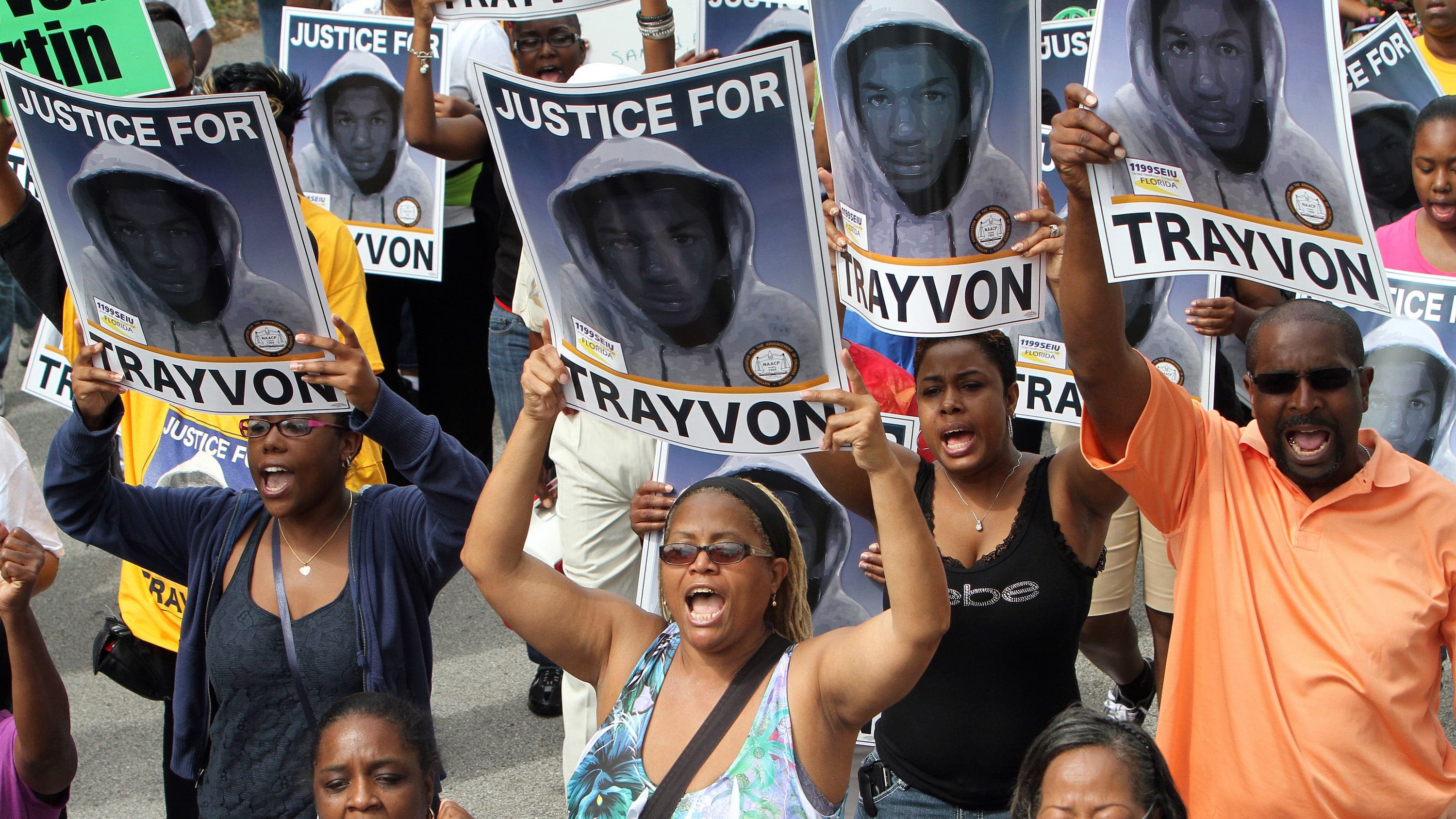On February 26, 2012, Trayvon Martin, an African American teen walking home from a trip to a convenience store, is fatally shot by George Zimmerman, a neighborhood watch volunteer patrolling the townhouse community of the Retreat at Twin Lakes in Sanford, Florida. Zimmerman later claimed to have shot the unarmed 17-year-old out of self-defense during a physical altercation.
After police initially opted not to arrest Zimmerman, whose father is white and mother is Hispanic, the case sparked protests and ignited national debates about racial profiling and self-defense laws. Zimmerman later was charged with second-degree murder. Following a high-profile trial that riveted America, he was acquitted of the charges against him. The term “Black lives matter” was then used for the first time by organizer Alicia Garza in a July 13, 2013 Facebook post in response to Zimmerman's acquittal. The phrase spread widely and became a rallying cry against racial injustice.
On February 26, Martin, a Miami high school student, was in Sanford visiting his father. Dressed in a hooded sweatshirt, the teen was on his way back to the home of his father’s fiancée, after buying a bag of Skittles and a bottle of juice, when he was spotted by Zimmerman, a 28-year-old insurance-fraud investigator who was captain of the neighborhood patrol at the Retreat at Twin Lakes, which recently had experienced a series of break-ins and burglaries. Zimmerman called the non-emergency line of the Sanford police to report that Martin looked suspicious then ignored a police dispatcher’s advice not to follow the young man. Moments later, gunfire rang out. When officers arrived, Martin was dead at the scene. Zimmerman, who had a bloody nose and cuts on the back of his head, was questioned then released. There were no eyewitnesses to the shooting, and police chose not to arrest Zimmerman, who claimed to have acted in self-defense.
After Martin’s parents raised concerns about the police investigation into the death of their son, who had no criminal record, the case gained national attention. Protest rallies were held in cities nationwide, including New York City, where on March 21 hundreds of people gathered for the Million Hoodie March and demanded justice for Martin, who many believed Zimmerman had profiled as suspicious and threatening simply because the teen was Black. Two days later, President Barack Obama said of the shooting: “If I had a son, he would look like Trayvon.” In addition to raising a national debate about race relations, the shooting drew attention to Florida’s controversial Stand Your Ground law, which allows people to use lethal force if they fear for their safety and does not require them to retreat from a dangerous situation, even when it’s possible to do so.
On April 11, 2012, following weeks of demonstrations, a special prosecutor appointed by Florida’s governor charged Zimmerman with second-degree murder. He pleaded not guilty and the case went to trial in June 2013. In court, the prosecution portrayed Zimmerman as a wannabe cop who had profiled Martin as a criminal, chased him down and fought him. Prosecutors also tried to poke holes in Zimmerman’s self-defense claim by pointing to inconsistencies in his statements to the police. Defense attorneys for Zimmerman, who did not take the stand, contended he only shot Martin after the teen attacked him. On July 13, after deliberating for 16 hours over two days, a jury of six women found Zimmerman not guilty.
In November 2013, the city of Sanford announced new rules forbidding volunteers in its neighborhood watch program from carrying guns and pursuing suspects. Martin’s death set off nationwide protests like the Million Hoodie March. And in 2013, Patrisse Cullors, Alicia Garza, and Opal Tometi formed the Black Lives Matter Network with the mission to “eradicate white supremacy and build local power to intervene in violence inflicted on Black communities by the state and vigilantes.”
